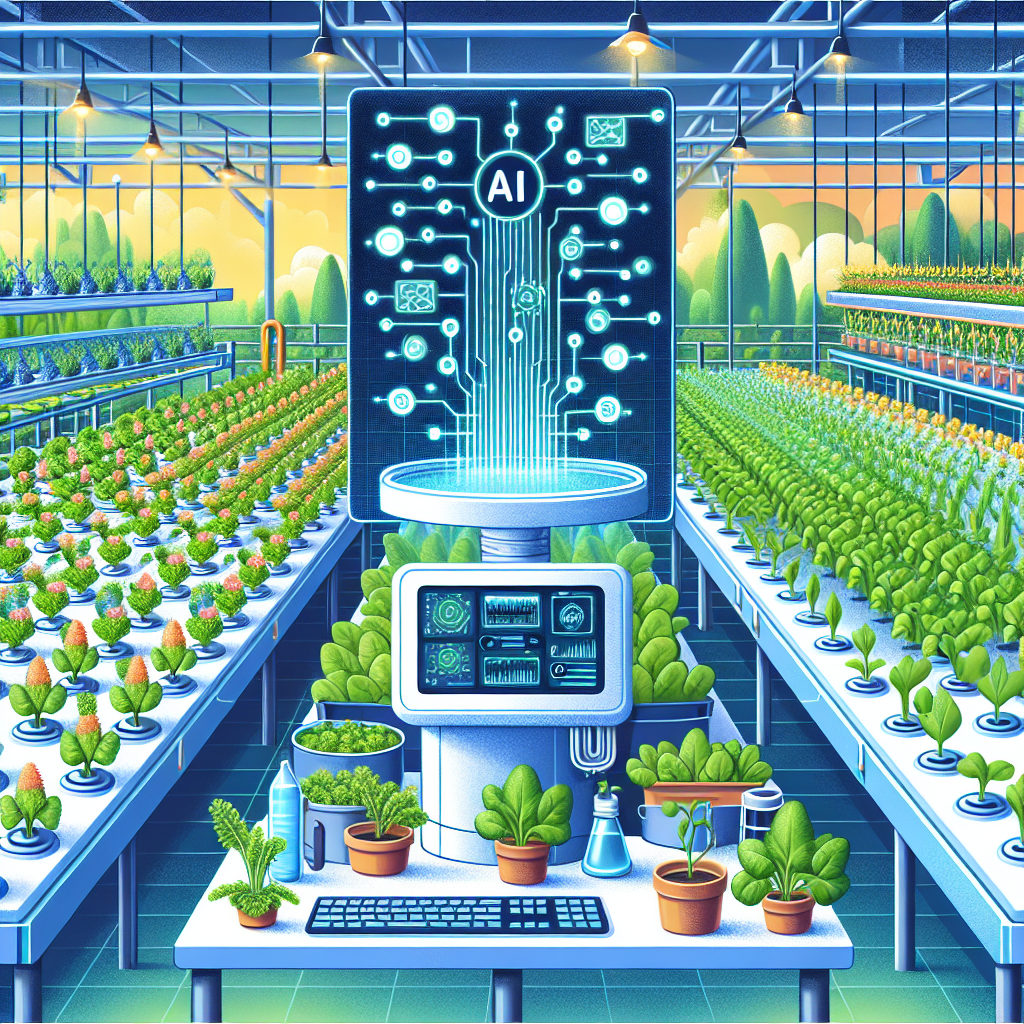Hydroponics is a soilless farming technique that has been gaining popularity in recent years due to its ability to produce high yields of crops in a controlled environment. One of the latest innovations in hydroponics is the integration of artificial intelligence (AI) technology, which is revolutionizing the way crops are grown and managed. AI in hydroponics is helping farmers optimize their growing systems, increase efficiency, and ultimately produce more food with less resources. In this article, we will explore the role of AI in hydroponics and how it is transforming the future of agriculture.
AI in Hydroponics: How it Works
AI technology in hydroponics works by using algorithms and machine learning to analyze data collected from sensors, cameras, and other monitoring devices in the growing environment. These data points can include temperature, humidity, nutrient levels, pH levels, and more. By continuously monitoring these factors, AI systems can make real-time decisions to adjust growing conditions to optimize plant growth.
For example, AI systems can analyze the data collected from sensors to determine the optimal nutrient levels for different crops at various stages of growth. This information can then be used to automatically adjust nutrient solutions in the hydroponic system, ensuring that plants receive the right amount of nutrients at the right time.
AI technology can also be used to predict plant diseases and pest infestations before they become a problem. By analyzing historical data and monitoring environmental conditions, AI systems can identify patterns that indicate the likelihood of a disease outbreak. This information can help farmers take preventative measures to protect their crops and minimize losses.
Benefits of AI in Hydroponics
There are several benefits to using AI technology in hydroponics. One of the main advantages is the ability to optimize growing conditions for maximum crop yields. By continuously monitoring and adjusting environmental factors, AI systems can ensure that plants receive the ideal conditions for growth, leading to higher yields and better quality produce.
AI in hydroponics also helps farmers save time and resources. By automating tasks such as nutrient management, pest control, and irrigation, AI systems can reduce the need for manual labor and minimize the risk of human error. This can lead to cost savings and increased efficiency in the growing process.
Another benefit of AI in hydroponics is the ability to collect and analyze large amounts of data in real-time. By monitoring environmental conditions and plant health, AI systems can provide valuable insights that can help farmers make informed decisions about crop management. This data-driven approach can lead to more sustainable farming practices and improved crop quality.
Innovations in AI technology are also making hydroponics more accessible to a wider range of farmers. By developing user-friendly interfaces and mobile applications, AI companies are making it easier for farmers to monitor and manage their hydroponic systems remotely. This can be especially beneficial for small-scale farmers and urban growers who may not have access to traditional farming methods.
FAQs
Q: Can AI technology be used in all types of hydroponic systems?
A: Yes, AI technology can be integrated into a variety of hydroponic systems, including nutrient film technique (NFT), deep water culture (DWC), and aeroponics. The key is to have sensors and monitoring devices in place to collect data that can be analyzed by AI systems.
Q: How much does AI technology cost for hydroponic farming?
A: The cost of AI technology for hydroponic farming can vary depending on the complexity of the system and the level of customization required. Some companies offer affordable AI solutions for small-scale growers, while larger operations may require a more advanced and costly system.
Q: Is AI technology in hydroponics sustainable?
A: Yes, AI technology in hydroponics can be a sustainable farming practice. By optimizing growing conditions and reducing the use of resources such as water and nutrients, AI systems can help farmers produce more food with less environmental impact.
Q: How can I get started with AI technology in hydroponics?
A: To get started with AI technology in hydroponics, you can research companies that offer AI solutions for agriculture and reach out to them for more information. Many companies provide consultation services and can help you design a system that meets your specific needs.
In conclusion, AI technology is transforming the way crops are grown in hydroponic systems by optimizing growing conditions, increasing efficiency, and improving crop quality. By using AI algorithms and machine learning, farmers can make data-driven decisions that lead to higher yields and more sustainable farming practices. As AI technology continues to evolve, we can expect to see even more innovations in hydroponics that will revolutionize the future of agriculture.

